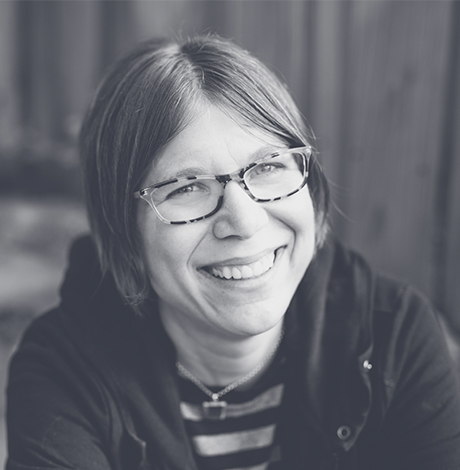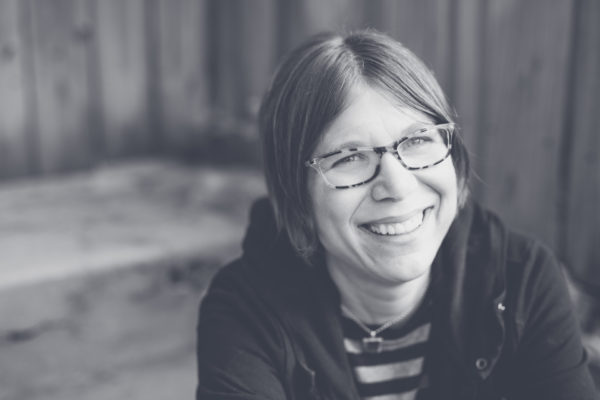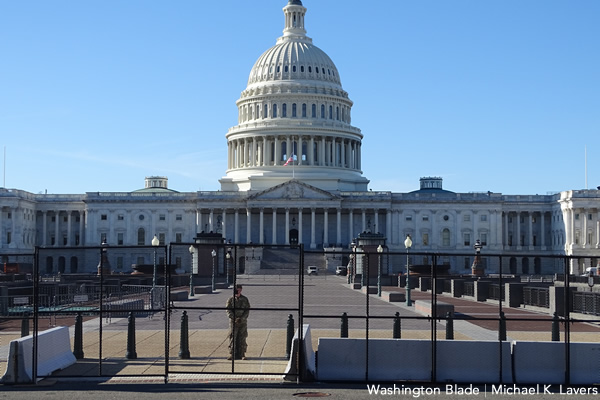Opinions
Generation Grit
America is only just beginning to understand its relationship to racism


When I was eleven years old, my best friend was an 80-, perhaps 90-year-old woman named Myrtle Friedman. Myrtle lived alone next door, on Second Street in Hailey, Idaho. Her two-story green stucco house was perched on the corner, just two blocks from Main Street. I would tend to her rhubarb, weed her vegetable garden, and listen to her tell stories. Myrtle had lived through both wars and the Great Depression. I got paid in hard candy, which I enjoyed in her formal living room as she told me about her life. In that room (my family certainly didn’t have a formal living room), I felt protected from the insecurity and chaos of my own house and the looming threat of the Cold War.
It’s hard to imagine the same little girl sheltering from the world in Myrtle Friedman’s house would grow up to become the owner of a business that employs 52 souls, most of them much younger than me. Ever since Millennials entered the workforce a decade ago, I’ve been relying on their energy and ideas to build my business. Now I am eager to start hiring from Gen Z.
It is long past the time to quit disparaging these resilient generations. Among the many lessons this week of righteous civic upheaval has brought, one is that young people are shifting the national discourse. As difficult as our current era is, it’s living through an era ripe for lifting up new ideas and fostering new leaders. Luckily for us, I believe we may be looking at the two greatest generations, back-to-back, that this country has ever seen.
In his national 2020 commencement speech, President Obama reminded the nation’s graduates “to be alive to one another’s struggles.” In other words: it’s not all about you. Having built a business with a team of emerging professionals, I’m here to tell you that my staff not only understands this message but knows how to live it. This is not the young workforce of the greed-is-good 1980s: for the most part they are innovative, scrappy and interested in a mission-based approach to work. The young people who have helped me build my company are akin to snowflakes only in their humble grasp of the fact that snow melts fast, and survival depends upon sticking together.
Nowadays I spend quite a bit of time contemplating how to keep a roof over everyone’s heads given “these times.” Not only my employees but the thousands of others whose homes we manage. In the COVID eraToday, managing property is also a public health responsibility. And our sector’s role in the economy isn’t insignificant: property managers are tending to our nation’s real estate in the shadow of what we’re now apparently calling the Greater Depression. As a community-oriented business leader, I’m not crazy about the hand we’ve been dealt. But these days, everyone needs to learn how to play with a new hand.
I often lie awake thinking about my endless Zooming, about how everyone’s office decor has been replaced by the domestic backdrops of their colleagues and customers. We’re so far apart, yet we’re inviting each other into our homes every single day. I am so intrigued by the differences and similarities that tie our work families together. We commiserate over one another’s stir-crazy kids in the background, slow-clap as cats get settled on keyboards, and enjoy more canine workmates than ever before (and there were a lot before). We’re all living out the irony of intimacy at a distance.
If our company’s revenues flounder and we have to lay people off, who is going to pay my employees’ rent and mortgages? Who’s going to feed their human and fur families? Certainly not the current administration, whose one-time checks are slow in coming and not nearly enough. We can expect no help from a reality TV star playing politics, a man who hasn’t experienced an empathetic moment in his life, nevermind a sleepless night over payroll.
Like most small business owners, I’m no stranger to struggle. I’ve struggled in my personal life, but in a way, I’ve also struggled because I’m an American–I’ve struggled in the way each of us has been struggling all along, without really understanding that our struggles aren’t normal, or necessary. As a Gen-Xer, a member of the beleaguered lost generation, I have lived through, and felt existential stress about, The Cold War, the eruption of Mt. St. Helens, ketchup as a vegetable, 1980’s interest rates, AIDS, 9-11, and the great recession. For years I lived with the certainty that my family and I would be leveled, whether by a nuclear bomb or another layoff. But all this insecurity and uncertainty made me empathetic and gave me grit.
Grit is currency in life, not to mention a requirement for small business owners in the U.S. In the end, our grit is what will get us through. Empathy is a requirement to be a decent human being, and in the end, our humanity is all we have.
But when it comes to grit, my generation has nothing on Millennials, nevermind Gen Z, where opportunities are limited, and social anxiety is abundant. Our nation’s young people–the faces in my Zoom meeting grids–have come of age through 9/11, the great recession, crippling student loan debt, the housing market crash and now a global pandemic, and the highest unemployment rates the United States has ever seen, and a long-overdue national reckoning on race. We may as well be calling them Generation Grit.
And yet, despite the historic struggles they’ve been through and are living every day, they’re also kind and empathetic: they understand that things are hard, they listen to and validate one another’s feelings, they grasp their role as citizens of the planet and defenders of justice, and frankly (thanks, I suspect, to those much-maligned helicopter parents), their emotional intelligence is off the charts.
This combination of empathy and grit is why, when many in corporate America were busy writing off Millennials as lazy and self-centered, I doubled down on the generation. It’s also why I’ll be first in line to start onboarding the graduates of 2020 and beyond.
I’ve learned through years of experience–not to mention through the empathy of people like Myrtle Friedman, who bore gentle witness to my anxiety, that being alive to the struggles of others is not just a sign of a good human being but it’s also good for business.
As an employer in COVID times, what’s my responsibility to the Millennials on my team, and to the Gen Z workers soon to be joining the workforce? How do I keep a formal living room open to them? I want to provide this space not just for them but also for myself. I am comforted by the vision and drive of today’s emerging generations: their determination and fearlessness give me hope for humanity. I see now that Myrtle must have felt much the same about me, a brooding girl with a vision for a better world.
In 12 years, I’ve grown my property management business from a little adobe duplex that made me an accidental landlord, to a very intentional landlady running a family of companies that manage more than a billion dollars in assets. I’ve done it all within a corporate culture of empathy and emotional and social well-being. I’m glad to report I’ve seen a remarkable return on investment–unlike many in our field, we’re still standing strong, not to mention pivoting, innovating, adapting, and charging full speed ahead.
Humanity is only at the beginning of this pandemic and, America is only just beginning to understand its relationship to racism. When we come out of this crisis, we’ll be facing a very different world. Let’s not treat Gen Z with suspicion and judgement, like we did to the Millennials. My bet’s on their resilience, and their heart. Let’s give them some credit, and some respect. Let’s greet them with a loving embrace, capture their ideas, and welcome what will certainly be the grittiest generation in generations.

Renee Good. Alex Pretti.
During this last year, I wondered who would be the first U.S. citizen to be shot by our government. It was not a matter of if, but when. Always.
And now we know.
I thought it would be soldiers. But the masked men got there first. Because when you mix guns and protests, guns inevitably go off. The powers that be always knew it, hoped for it, and wanted it to happen.
Why? Because masked men and guns instill fear. And that’s the point. Ask yourself when’s the last time you saw masked men and guns in our cities, or anywhere for that matter. I always thought that men masked men with guns robbed banks. I was wrong.
Masked men want to rob us of our dignity as human beings. Of our assurance in the calmness and contentment of our communities. They want to rob us of our trust in our institutions, and our faith in each other. And truly they want to rob us of the happiness and joy that we all constantly yearn to find in our lives.
But our only collective ability as a nation to push back is our protests. Peaceful protests. As Renee and Alex did.
But peaceful protests? Because they are the perfect power to shame the cowardice of those that believe guns and force are the only true authority. Fortunately, our last hope and fiercest ally is our Constitution, which gives us the power — and the right — to protest.
How much more peaceful can you get when you hear Renee Good’s last words, “I’m not mad at you, Dude.” I may be mad at the system, the government, the powers of unknown people pulling the strings but not you personally. “Dude.” Peaceful to the last word.
Yet, what becomes lost in the frantic pace of hair-trigger news cycles, of officials declaring impetuous damnations alongside johnny-on-the spot podcasters spouting their split-second opinions are the two human beings who have lost their lives.
How habituated we’ve become as we instantly devour their instant obituaries. The sum of their lives declared in less than 10 seconds of cellphone video. They haven’t just lost their lives. They’ve lost all of their lives. And now we watch over and over again as their death is re-revealed, re-churned, re-evaluated, and re-consumed. In that endless repetition, we forget the meaning of life itself.
We must remember that Renee and Alex believed in their communities, in the purpose of their work, in the happiness of their loves and lives, and in the dignity and curiosity of life itself. They were singular individuals who did not deserve to die at the end of a gun barrel for any reason, ever.
How fitting that Renee was a poet. Sometimes in confronting the massiveness of loss in our lives, we look to our poetry and our psalms, our hymns and our lullabies, to find a moment of solace in our communal grief, and to remember Renee and Alex, for what they gave us in life.
Yet, at this moment, I cannot escape the reality of what was taken from them so soon, so violently and so forever. They were exceptionally courageous and normal people, and for that reason, I must remember them through a poem to explain to me, and others, the unexplainable.
I dream of this not happening.
I dream this day and night.
For none of this is real.
And none of this is right.
I dream of these sons and daughters
who now will not go home,
and dream of their mothers and fathers,
who now must stand alone.
I dream of all the flowers that they will never hold —
the kisses never shared again, the secrets to not be told.
I dream of all the sunsets that for them will never set,
I dream of all the love they gave and now they must forget.
I dream of all their dinners
with wine to never spill,
or books to read, or bread to break
or babies to be held.
I dream of each one still reaching
in the middle of the night,
for a hand that needs another
to stop a nightmare’s flight.
I dream of them not dreaming,
which I could never do,
for how can you not dream a dream
that never will come true.
I dream of this not happening.
I dream this day and night.
For none of this is real
And none of this is right.
Carew Papritz is the award-winning author of “The Legacy Letters,” who inspires kids to read through his “I Love to Read” and the “First-Ever Book Signing” YouTube series.
Opinions
Gay Treasury Secretary’s silence on LGBTQ issues shows he is scum
Scott Bessent is a betrayal to the community

We all know the felon in the White House is basically a POS. He is an evil, deranged, excuse for a man, out only for himself. But what is just as sad for me is the members of the LGBTQ community serving in his administration who are willing to stand by silently, while he screws the community in so many ways. The leader, with his silence on these issues, is the highest ranking “out” gay ever appointed to the Cabinet; the current secretary of the treasury, the scum who goes by the name, Scott Bessent.
Bessent has an interesting background based on his Wikipedia page. He is from South Carolina and is what I would call obscenely wealthy. According to his financial assets disclosure to the U.S. Office of Government Ethics, Bessent’s net worth was at least $521 million as of Dec. 28, 2024; his actual net worth is speculated to be around $600 million. He married John Freeman, a former New York City prosecutor, in 2011. They have two children, born through surrogacy. I often wonder why guys like Bessent conveniently forget how much they owe to the activists in the LGBTQ community who fought for the right for them to marry and have those children. Two additional interesting points in the Wikipedia post are Bessent reportedly has a close friendship with Donald Trump’s brother Robert, whose ex-wife, Blaine Trump, is the godmother of his daughter. The other is disgraced member of the U.S. House of Representatives, John Jenrette, is his uncle.
Bessent has stood silent during all the administrations attacks on the LGBTQ community. What does he fear? This administration has kicked members of the trans community out of the military. Those who bravely risked their lives for our country. The administration’s policies attacking them has literally put their lives in danger. This administration supports removing books about the LGBTQ community from libraries, and at one point even removed information from the Pentagon website on the Enola Gay, the plane that dropped the first atomic bomb, thinking it might refer to a gay person. It was actually named after Enola Gay Tibbets, the mother of the pilot, Col. Paul Tibbets. That is how dumb they are. Bessent stood silent during WorldPride while countries around the world told their LGBTQ citizens to avoid coming to the United States, as it wouldn’t be safe for them, because of the felon’s policies.
Now the administration has desecrated the one national monument saluting the LGBTQ community, Stonewall, in New York City, by ordering the removal of the rainbow flag. The monument honors the people who get credit for beginning the fight for equality that now allows Bessent, and his husband and children, to live their lives to the fullest. That was before this administration he serves came into office. I hope his children will grow up understanding how disgusting their father’s lack of action was. That they learn the history of the LGBTQ community and understand the guts it took for a college student Zach Wahls, now running for the U.S. Senate from Iowa, to speak out for his “two moms” in the Iowa State Legislature in 2011, defending their right to marry.
Bessent is sadly representative of the slew of gays in the administration, all remaining silent on the attacks on the community. They are mostly members of the Log Cabin Republicans who have given up on their principles, if they ever had any, to be subservient to the felon, and the fascists around him, all for a job.
There are so many like them who supported the felon in the last election. Some who believed in Project 2025, others who didn’t bother to read it. Many continue to stand with him, with the sycophants in the Congress, and the incompetents and fascists in the administration, as they work to destroy our country and end the democracy that has served us so well for 250 years. To keep out all immigrants from a nation of immigrants. They all seem to forget it was immigrants who built our country, who fought against a king, and won. These sycophants now support the man who wants to be king. Who openly says, “I am president I can do anything only based on my own morality,” which history clearly shows us he has none.
I believe we will survive these horrendous times in American history. We have fought a king before and won. We have kept our country alive and thriving through a civil war. We the people will defeat the felon and his minions, along with the likes of those who stood by silently like Scott Bessent. They seem to forget “Silence = Death.”
Peter Rosenstein is a longtime LGBTQ rights and Democratic Party activist.
Opinions
Unconventional love: Or, fuck it, let’s choose each other again
On Valentine’s Day, the kind of connection worth celebrating

There’s a moment at the end of “Love Jones” — the greatest Black love movie of the 21st century — when Darius stands in the rain, stripped of bravado, stripped of pride, stripped of all the cleverness that once protected him.
“I want us to be together again,” he says. “For as long as we can be.”
Not forever. Not happily ever after. Just again. And for as long as we can. That line alone dismantles the fairy tale.
“Love Jones” earns its place in the canon not because it is flawless, but because it is honest. It gave us Black love without sanitizing it. Black intellect without pretension. Black romance without guarantees. It told the truth: that love between two whole people is often clumsy, ego-driven, tender, frustrating, intoxicating—and still worth choosing.
That same emotional truth lives at the end of “Eternal Sunshine of the Spotless Mind,” my favorite movie of all time. Joel and Clementine, having erased each other, accidentally fall back into love. When they finally listen to the tapes that reveal exactly how badly they hurt one another, Clementine does something radical: she tells the truth.
“I’m not perfect,” she says. “I’ll get bored. I’ll feel trapped. That’s what happens with me.”
She doesn’t ask Joel to deny reality. She invites him into it. Joel’s response isn’t poetic. It isn’t eloquent. It’s not even particularly brave. He shrugs.
“Ok.”
That “OK” is one of the most honest declarations of love ever written. Because it says: I hear you. I see the ending. I know the risk. And I’m choosing you anyway.
Both films are saying the same thing in different languages. Nina and Darius. Clementine and Joel. Artists and thinkers. Romantics who hurt each other not because they don’t care — but because they do. Deeply. Imperfectly. Humanly.
They argue. They retreat. They miscommunicate. They choose pride over vulnerability and distance over repair. Love doesn’t fail because they’re careless — it fails because love is not clean.
What makes “Love Jones” the greatest Black love movie of the 21st century is that it refuses to lie about this. It doesn’t sell permanence. It sells presence. It doesn’t promise destiny. It offers choice.
And at the end — just like “Eternal Sunshine” — the choice is made again, this time with eyes wide open.
When Nina asks, “How do we do this?” Darius doesn’t pretend to know.
“I don’t know.”
That’s the point.
Love isn’t a blueprint. It’s an agreement to walk forward without one.
I recently asked my partner if he believed in soul mates. He said no—without hesitation. When he asked me, I told him I believe you can have more than one soul mate, romantic or platonic. That a soul mate isn’t someone who saves you — it’s someone whose soul recognizes yours at a particular moment in time.
He paused. Then said, “OK. With those caveats, I believe.”
That felt like a Joel shrug. A grown one.
We’ve been sold a version of love that collapses under scrutiny. Fairy tales promised permanence without effort. Celebrity marriages promised aspiration without truth. And then reality — messy, public, human—stepped in. Will and Jada didn’t kill love for me. They clarified it.
No relationship is perfect. No love is untouched by disappointment. No bond survives without negotiation, humility, and repair. What matters isn’t whether love lasts forever. What matters is whether, when confronted with truth, you still say yes.
“Love Jones” ends in the rain. “Eternal Sunshine” ends in a hallway. No swelling orchestras. No guarantees. Just two people standing at the edge of uncertainty saying: Fuck it. I love you. Let’s do it again.
That’s not naïve love. That’s courageous love.
And on Valentine’s Day — of all days — that’s the kind worth celebrating.
Randal C. Smith is a Chicago-based attorney and writer focusing on labor and employment law, civil rights, and administrative governance.
-

 District of Columbia5 days ago
District of Columbia5 days agoDeon Jones speaks about D.C. Department of Corrections bias lawsuit settlement
-

 European Union5 days ago
European Union5 days agoEuropean Parliament resolution backs ‘full recognition of trans women as women’
-

 Africa4 days ago
Africa4 days agoLGBTQ groups question US health agreements with African countries
-

 National4 days ago
National4 days agoTrump falsely links trans people to terrorism
















